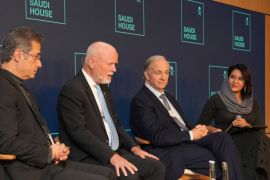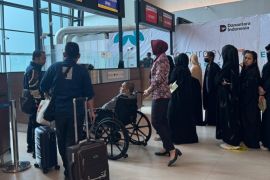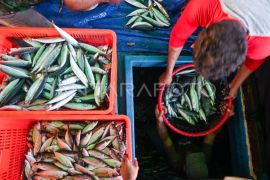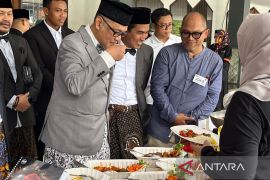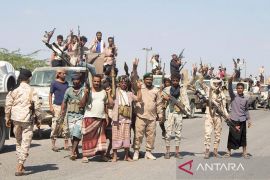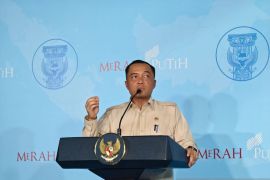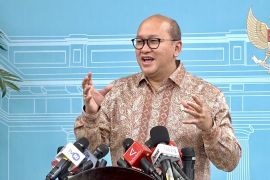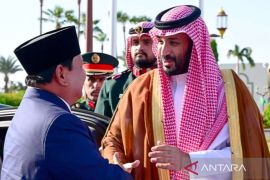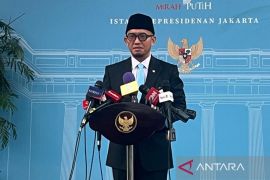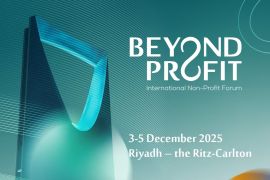To that effect, the Kingdom has been making preparations for the development of some sectors, including infrastructure, culture, and technology.
In the infrastructure sector, Saudi Arabia is now concentrating on the development of facilities for Hajj and umrah (minor Hajj) pilgrimage to meet one of the three pillars in the Saudi Vision 2030, namely to be the heart of the Arab and Islam world, to make the country a global investment powerhouse, and to make it a hub that connects the three continents of Asia, Europe, and Africa.
Realizing that the number of Hajj and umrah pilgrims continues to increase every Hajj season, the Saudi government has decided to make the largest expansion ever of the Grand Holy Mosque in the history of Islam.
Currently, the Grand Holy Mosque can accommodate about two million Hajj pilgrims, and with the expansion of this Islam?s holy site, the Saudi government would be able to serve some 30 million people in 2039 for Hajj and umrah rituals, a senior advisor to the Minister of Culture and Information, Faheem H. Al Hamid, told Indonesian senior journalists in Mecca, recently.
The third phase of construction for expansion of the Holy Mosque?s left wing is expected to be completed this year, with the hope that the pilgrims would be able to perform the rituals in the Hajj season, Faheem remarked.
Technology
This new building?s interior section, with a modern look, is the work of an Italian designer, Faheem, who, during a tour of the new complex of the mosque, stated that the floor tiles are from Greek. Pilgrims can find the floor always remaining cool without air conditioning, although the temperature outside is high.
The new pilgrimage area also includes a hospital, which can accommodate hundreds of patients for free. "The highly standardized hospital is only earmarked for pilgrims and not for the public," he added.
Meanwhile, Sheikh Shaleh Al-Thalib, who is an imam (a religious leader) at the Grand Holy Mosque, noted that King Salman bin Abdulazis Al Saud, as the Custodian of the Holy Mosque, directly oversaw the expansion process of the mosque to make sure that everything has been carried out well.
The imam pointed out that the construction workers work hard for 24 hours on seven days, and more than 100 thousand security men are deployed to safeguard the Masjidil Haram.
In addition to the expansion of the Holy Mosque, the Saudi government is likewise preparing modern trains plying the Jedda-Mecca railway route. The worshipers are expected to enjoy the luxury and convenience on board the coaches, where audio-visual facility, internet connections, and cafeteria are available.
The Saudi government is also establishing a modern railway station with a beautiful interior design that provides electronic ticketing system, escalators, and restaurants in the environmentally friendly building.
Culture
The Saudi government expects the changes, which have been successfully achieved, to be well known internationally, and therefore, it seeks the dissemination of news stories worldwide through mass media involving young people who are high-technologically minded.
Another interesting change is that of the culture, especially pertaining to women, who are now given bigger opportunities to take part in the Saudi development programs, including those on efforts to disseminate news stories on the Saudi development success.
Unlike before, women are now allowed to drive to their offices or other places as they are entitled to do so for their participation in the development towards their country?s modernization. In addition, there is no restriction on women`s attire, as they are exempted from wearing Muslim attire like `hijab, chadar, nikab, or burka,? especially at their work places.
According to General Supervisor of Ministry Deputy for International Media, the Ministry of Culture and Information, Khaleed A.A. Al Ghamdi, it is the right of women to drive and to get dressed, and the Ulema Council as well as religious community have understood it to be in line with the government?s program of modernization.
"Among the ulemas that adopt Saudi modernization are (Sheikh Abdur-Rahman) As-Sudais (the President of the Grand Holy Mosque and the Prophet?s Mosque Affairs) and Sheikh Saleh Al-Talib (one of the imams of the Grand Holy Mosque)," Khaleed revealed.
Concerning ulemas who do not agree with the Saudi government?s policy on modernization, he admitted that there were ulemas who have different opinions, as people of Saudi Arabia have their own rights to make opinions as long as they do not attack people; however, they can still criticize the government?s systems.
Ghozal Alqabbani, who is a staff member at Saudi TV?s engineering department, is an example of women who are free to get dressed on her own wish in a polite way without any force from any party as there is no government regulation on how a woman should be dressed.
?So just work, and do not be afraid to do what you want to do,? the Alfaisal University?s graduate stated, adding that she was happy working as an engineer at Saudi TV.
As part of the cultural development towards the Kingdom?s Vision 2030, the Saudi administration has created the General Culture Authority, which deals with the development of cinemas, theaters, music, visual arts, and literature.
The General Culture Authority is in charge of developing the industries of cinema, theater arts, traditional and modern musical arts, visual arts, and literature, the Authority?s Chief Executive Officer (CEO), Ahmed F. Almaziad, revealed at his office in Riyadh recently.
"Our role is to create an ecosystem where people, especially those from the younger generation, like such cultural activities, and they are encouraged to develop their own creativeness," Ahmed, who is trying to combine young people`s talents of local, regional, and global communities, explained.
In an effort to catch up with the development of modern arts, Ahmed noted that his side was expected to make international exchange program on culture in a bid to create perception on modern Saudi Arabia.
EDITED BY INE
(T.B005/A/KR-BSR/A014)
Reporter: Bambang Purwanto
Editor: Aditia Maruli Radja
Copyright © ANTARA 2018

